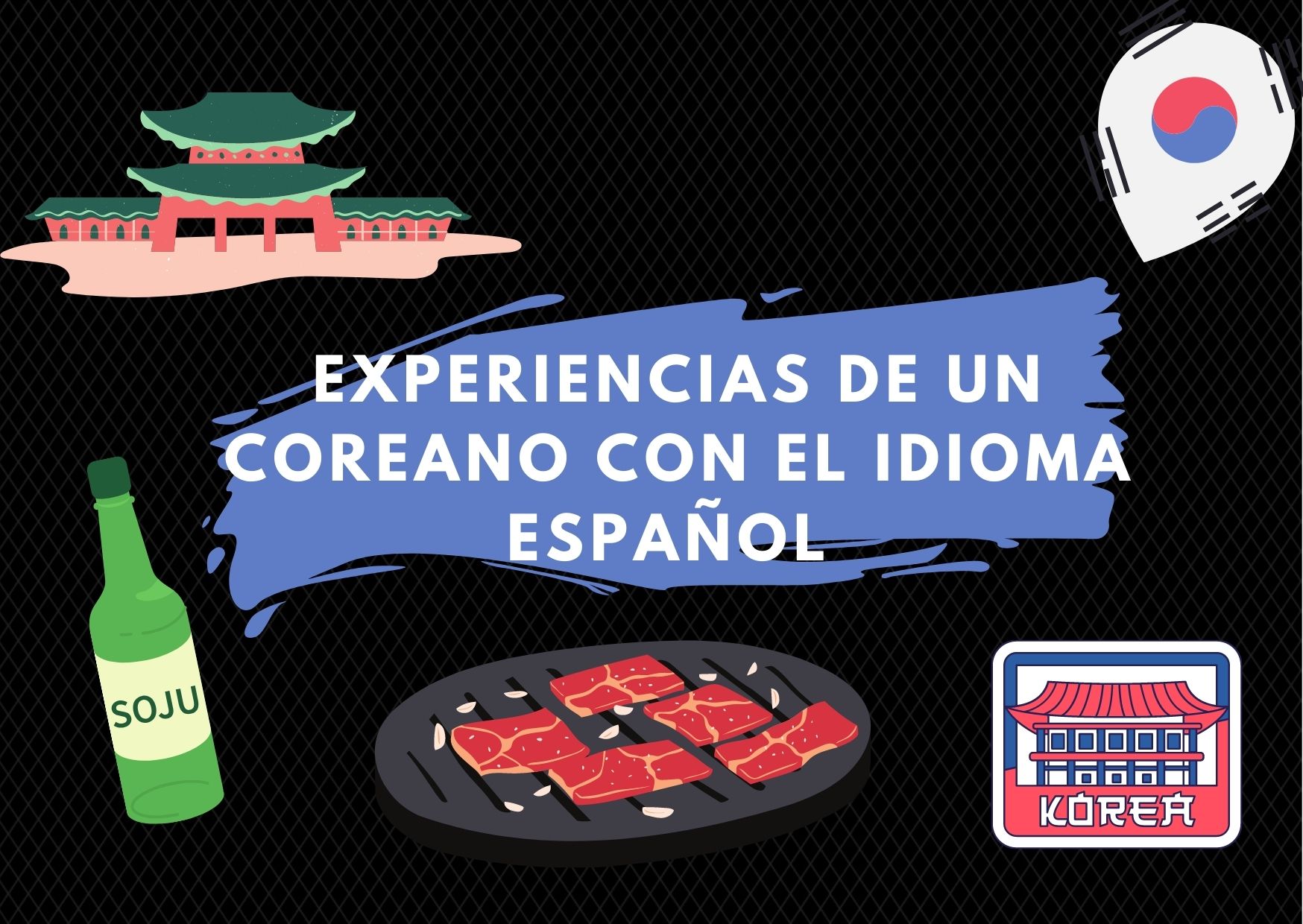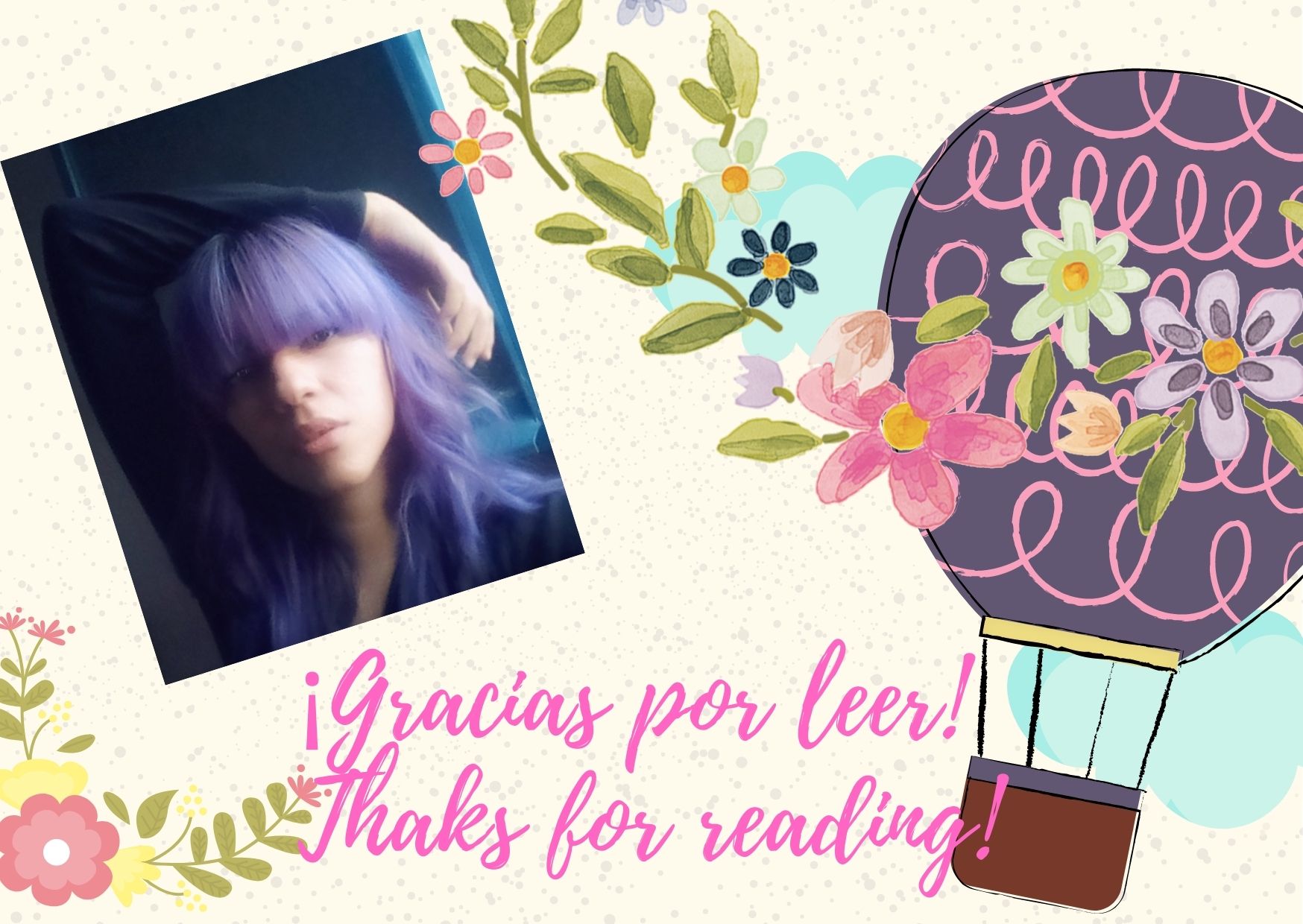Entrevista a un coreano sobre el idioma español (SPA/ENG)

¡Hola, gente de internet! ¿Cómo estan? Hoy traigo un contenido interesante y es que, estuve hablando con uno de mis amigos coreanos y llegamos al tema del idioma español, así que decidí hacerle 6 preguntas acerca de su experiencia con el idioma y su paso por varios paises de latinoamérica. Si sienten curiosidad, sigan leyendo esta entrevista.
Hello internet people, how are you? Today I bring an interesting content, I was talking with one of my Korean friends and we got to the topic of the Spanish language, so I decided to ask him 6 questions about his experience with the language and his time in several Latin American countries. If you are curious, read the interview.

Yooni es un hombre de 34 años quién trabaja en comercio exterior y por esta razón su empresa lo envía fuera de Corea del Sur a trabajar, motivo por el cuál debe aprender distintos idiomas, entre esos el español.
Yooni is a 34-year-old man who works in foreign trade and for this reason his company sends him to work outside South Korea, which is why he has to learn different languages, including Spanish.
¿Que tan difícil fue para ti aprender español?/How difficult was it for you to learn Spanish?
Yooni: Es muy difícil aprender español, sobre todo en la conjugación de verbos ya que conjugan muchísimos verbos en el idioma español (pasado, presente y futuro) como: Había dicho, hubiese dicho, he dicho, habré dicho. Aunque el español es difícil en muchos aspectos, esto fue lo que me causó más conflictos a la hora de aprender.
Yooni: It's very difficult to learn Spanish, especially in the conjugation of verbs since they conjugate so many verbs in the Spanish language (past, present and future) Such as: Había dicho, hubiese dicho, he dicho, he dicho, habré dicho. Although Spanish is difficult in many aspects, this is what caused me the most conflict when I was learning.
¿Es más facil entender o hablar español?/Is't easier to understand or speak Spanish?
Una vez que ya se tiene el concepto básico del español es más fácil entender que hablar, porque para los coreanos es dificil pronunciar el español, sobre todo las «R». Para el coreano es más facil aprender a oír y entender que hablar, sin dudas.
Once you have the basic concept of Spanish it's easier to understand than to speak because it's difficult for Koreans to pronounce Spanish, especially the "R". For Koreans it's easier to learn to hear and understand than to speak, without a doubt.
¿Por qué decidiste aprender español?/Why did you decide to learn Spanish?
Como mi carrera es el comercio exterior, tenía que aprender ingles y además debía aprender otro idioma como chino, japonés, ruso, aleman, portugués, español, etc. Y en un principio yo quería aprender portugués, pero la clase ya estaba llena, así que opté por el segundo idioma que más se le parece, que es el español.
Since my career is in foreign trade, I had to learn English and I also had to learn another language such as Chinese, Japanese, Russian, German, Portuguese, Spanish, etc. And at first I wanted to learn Portuguese but the class was already full so I opted for the second language that most resembles it, which is Spanish.
De todos los idiomas que aprendiste y a nivel de dificultad, ¿en qué escalas colocarías el español?
Of all the languages you have learned and in terms of difficulty, in which scale would you place Spanish?
Sin duda alguna el español iría en primera categoría por todas las reglas a nivel de gramática. Tiene muchísimas reglas y también a la hora de la pronunciación, sin contar que cada país de latinoamérica tiene su propia jerga, y eso hace más difícil el comprender el idioma cuando tenemos que poner en práctica lo aprendido en la cademia, esta vez con nativos.
Without a doubt, Spanish would be in the first category because of all the rules at the grammar level. It has a lot of rules and also when it comes to pronunciation, not to mention that each country in Latin America has its own slang and that makes it more difficult to understand the language when we have to put into practice what we have learned in academy, this time with native speakers.
En tu opinión que idioma es más difícil: ¿Coreano o español?
In your opinion, which language is more difficult: Korean or Spanish?
Sin dudas el Coreano. Los extranjeros no solo tienen que lidiar con la falta de género en el idioma y la pronunciación que es bastante difícil, sino también con aprender nuestra escritura, el Hangul.
Undoubtedly Korean. Foreigners not only have to deal with the lack of gender in the language and pronunciation which is quite difficult, but also they have to learn our script, Hangul.
¿Qué disfrutaste de aprender el idioma?/What did you enjoy about learning the language?
Los viajes a latinoamérica, el contacto con latinos y las experiencias vividas ahí. Yo fuí muy feliz en mi estadía en Venezuela, me divertí muchísimo y aprendí y entendí sobre una cultura nueva (gracias también a que soy más abierto de mente que el coreano promedio de mi edad) y también disfruté enseñando a mis amigos venezolanos sobre mi cultura. Tengo muy buenos recuerdos de esos días.
The trips to Latin America, the contact with Latinos and the experiences there. I was very happy in my stay in Venezuela, I had a lot of fun and I learned and understood about a new culture (thanks also to the fact that I'm more open-minded than the average Korean my age) and I also enjoyed teaching my Venezuelan friends about my culture. I have very good memories of those days.

Aunque este post fue bastante diferente a lo que acostumbro a hacer, me animé a hacerlo al final porque me parece interesante saber qué opinan los extranjeros de la cultura latina y de nuestro idioma, así como también me alegra saber que más extranjeros (sobre todo asiáticos quienes antes no sentían interés) hoy día están interesandose mucho más por nuestro idioma.
Although this post was quite different from what I usually do, I decided to do it at the end because I find it interesting to know what foreigners think about the Latin culture and our language, and I'm also glad to know that more foreigners (especially Asians who were not interested before) are nowadays becoming much more interested in our language.
Espero que les haya gustado el post, si es así no se olviden de hacermelo saber en los comentarios. Muchas gracias a todos los que apoyan mi trabajo y bienvenido y si eres un nuevo lector. Se les quiere, mil besos y nos encontraremos en otro post.
I hope you liked the post, if so, don't forget to let me know in the comments. Thank you very much to all who support my work and welcome and if you are a new reader. I love you, a thousand kisses and I'll see you in another post.


Las imágenes de portada y despedida, las realicé en el editor Canva. El logo lo hice en la siguiente página:
The cover and farewell images, I made them in Canva editor. I made the logo on the next page:
Bastante interesante, nunca he tenido la oportunidad de entablar una conversación, sobre un tema, con alguien de Asia.
Yo empecé a estudiar coreano y entre en una app que se llama Hellotalk y es para conocer personas del país del idioma que estás aprendiendo y entre otras cosas la gente te ayuda corrigiendote y asi y además, ganas amigos. Al final no pude seguir con mis clases pero conservé a los amigos Coreanos que hice.